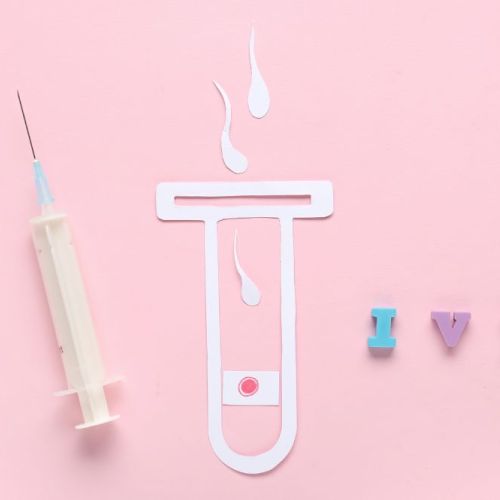Understanding the Ericsson Sperm-Washing Protocol

If you have a strong gender preference when it comes to your next child, consider fertility treatment using the Ericsson sperm-washing protocol. At California Center for Reproductive Health, our doctors Eliran More, MD and Irene Woo, MD, offer this procedure to increase the odds that you’ll have a male or female child.
Make an appointment at one of our offices in Encino, Valencia, Santa Monica, or West Hollywood, California, to learn about the Ericsson method and see if it’s the right choice for you. Whether you want a certain sex to avoid passing a sex-linked genetic defect or desire family balance, the practice is ready to help.
How the Ericsson method works
To understand the Ericsson method of sperm washing, it helps to understand how gender is determined. The fertilizing sperm determines a baby’s sex. If that sperm carries an “X” chromosome, you’ll have a girl, but if it carries a “Y” chromosome, you’ll have a boy. The extra “leg” of the X chromosome slows it down slightly.
The Ericsson method of sperm washing was developed in the early 1970s by a physician and reproductive researcher named Ronald Ericsson. He found that sperm carrying a Y chromosome moved through liquid faster than those carrying an X chromosome.
After a sample of semen is gathered from your partner or a donor, the sperm are sent to pass through a sticky protein liquid. Those that move fastest through this liquid are more likely to be sperm with Y chromosomes. The doctors can then isolate the majority of sperm with the chromosome you desire and place the appropriate sperm into your uterus using intrauterine insemination.
The doctors perform intrauterine insemination as close to your day of ovulation as possible. They’ll help guide you with fertility monitoring beforehand to increase the chances that you conceive.
Accuracy and safety of the Ericsson method
The Ericsson sperm-washing protocol increases your chance of having a baby of a specific sex, but the separation process can lead to an overlap between sperm with X chromosomes and Y chromosomes. As a result, the success rate of getting the gender you want with this procedure is 70-75%. So, when your goal is to have a greater likelihood of having one gender over the other, the Ericsson method is a good choice.
The procedure does not guarantee your baby will be a certain sex, however. If you want a greater chance of getting the sex you prefer, you should look to other methods such as Microsort® technology or preimplantation genetic diagnosis, also offered at California Center for Reproductive Health.
The procedure is quite safe, and you’re at no greater risk of miscarriage or complications than you would be if you had gotten pregnant in a traditional manner.
Our goal at California Center for Reproductive Health is to help families in the Greater Los Angeles area and beyond create the families they desire and deserve. As a leader in fertility evaluation, diagnosis, and treatment, the staff is proud to offer effective, innovative gender-selection procedures as well. Call the most convenient location to set up your consultation or use the online tool to schedule.
Eliran Mor, MD
Reproductive Endocrinologist located in Encino, Valencia & West Hollywood, CA
FAQ
What does a reproductive endocrinologist and infertility specialist do?
Reproductive endocrinology and Infertility is a sub-specialty of Obstetrics and Gynecology. In addition to managing medical and surgical treatment of disorders of the female reproductive tract, reproductive endocrinologist and infertility (REI) specialists undergo additional years of training to provide fertility treatments using assisted reproductive technology (ART) such as in vitro fertilization.
Reproductive endocrinologists receive board certification by the American Board of Obstetrics and Gynecology in both Obstetrics and Gynecology and Reproductive Endocrinology and Infertility.
When should I see an REI specialist?
In general, patients should consider consulting with an REI specialist after one year of trying unsuccessfully to achieve pregnancy. The chance of conceiving every month is around 20%, therefore after a full year of trying approximately 15% of couples will still not have achieved a pregnancy.
However, if a woman is over the age of 35 it would be reasonable to see a fertility specialist earlier, typically after 6 months of trying.
Other candidates to seek earlier treatment are women who have irregular menses, endometriosis, fibroids, polycystic ovary syndrome (PCOS), women who have had 2 or more miscarriages, or problems with the fallopian tubes (prior ectopic pregnancy).
What are the reasons we are having trouble conceiving?
Approximately 1/3 of the time cause for infertility is a female factor, 1/3 of the time a male factor, and the remaining 1/3 a couples’ factor.
At CCRH, we emphasize the importance of establishing a correct diagnosis. Both partners undergo a comprehensive evaluation including a medical history and physical exam.
Furthremore, the woman’s ovarian reserve is assessed with a pelvic ultrasound and a hormonal profile. A hysterosalpingogram (HSG) will confirm fallopian tube patency and the uterine cavity is free of intracavitary lesions. A semen analysis is also obtained to evaluate for concentration, motility, and morphology of the sperm.
Additional work up is then individualized to direct the best possible treatment option for each couple.
What is IVF? What is the process like?
In vitro fertilization (IVF) is the process that involves fertilization of an egg outside of a woman’s body.
The process starts with fertility drugs prescribed to help stimulate egg development. In your natural cycle, your body is only able to grow one dominant egg, but with stimulation medication we can recruit multiple eggs to continue to grow. After about 8-10 days of stimulation, the eggs are surgically retrieved and then fertilized with sperm in a specialized laboratory. Fertilized eggs are then cultured under a strictly controlled environment within specialized incubators in the IVF laboratory for 3-5 days while they develop as embryos. Finally, embryos (or an embryo) are transferred into the uterine cavity for implantation.
Should I have IVF?
Before deciding if IVF is the right choice, it’s important to sit down with an REI specialist to discuss available treatment options. For some people, other methods such as fertility drugs, intrauterine insemination (IUI) may be the best first choice treatment. At CCRH, we believe each individual couple is unique and not everyone needs IVF.
Is the IVF procedure painful?
While not painful, the fertility medications may some side effects including headaches, hot flashes, mood swings, and bloating. The injection sites may also bruise.
Will IVF guarantee a baby?
Unfortunately, no. Many people think once they start IVF it’s a matter of time that they will be pregnant and have a baby. But according to national statistics per the Society of Assisted Reproduction (SART), on average 40% of assisted reproduction cycles achieve live births in women under age 35. The chances of success then continue to decrease with advancing age.
At CCRH, we employ only evidence-based interventions to ensure patient safety and optimal outcome. While we cannot guarantee a baby, we guarantee that you will receive the best, most advanced, personalized care to help you maximize your chance of a baby.
What is the success rate for IVF?
The average IVF success rate (success measured in live birth rate) using one’s own eggs begins to drop around age 35 and then rapidly after age 40. This is due to the decline in egg quantity and egg quality as a woman ages.
Our clinic’s success rate consistently beats the national average year after year.
Do insurance plans cover infertility treatment? How much does IVF cost?
Individual insurance plans often do not have any coverage for infertility treatments. If you have a group plan, you can call members services to see if they have coverage for infertility (including consultation/workup and IVF).
After your consultation with our REI specialist, one of our dedicated account managers with sit with you to go over the cost of treatment.




